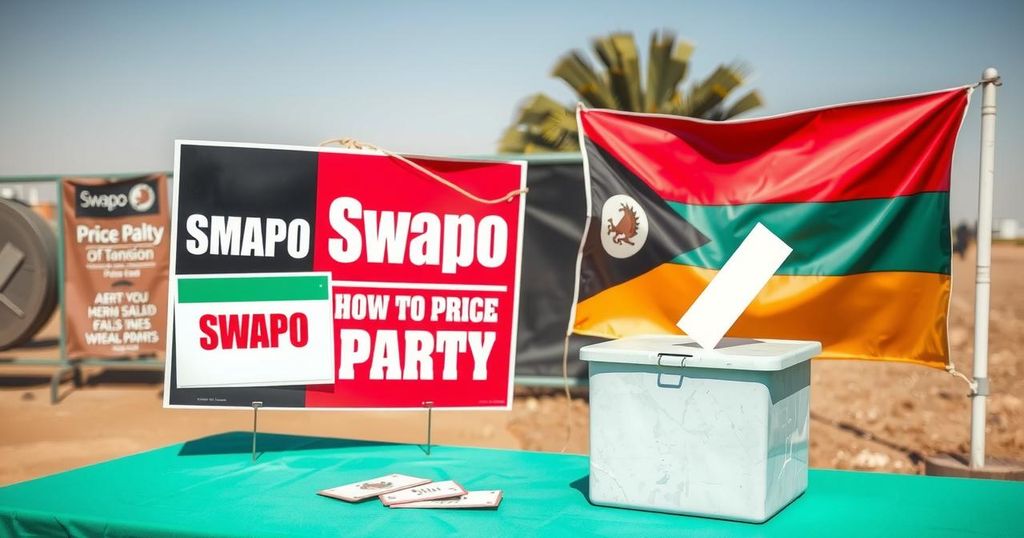World news
AFRICA, ALLIANCE DU CHANGEMENT, ALLIANCE LEPEP, BDP, BOTSWANA DEMOCRATIC PARTY, DEMOCRACY, ELECTIONS, GOVERNANCE, GOVERNMENT, MAURITIUS, MILITANT SOCIALIST MOVEMENT, NAMIBIA, NET, NETUMBO NANDI - NDAITWAH, OPPOSITION, PARLIAMENTARY SEATS, PR, PRAVIND JAGNAUTH, SAHARAN AFRICA, SWAPO
Michael Grant
0 Comments
Namibia Elections: Swapo Faces Challenges Amidst Broader Trends in Africa
Swapo has maintained power in Namibia, but its support has waned amid growing public dissatisfaction. Multiple sub-Saharan African governments have faced significant electoral setbacks this year, driven by economic turmoil and corruption. The emergence of strong opposition parties hint at a shift towards more dynamic multiparty politics. Key electoral losses in Botswana and Mauritius underscore this trend, suggesting a more resilient democratic spirit in the region.
Namibia’s governing party, Swapo, has seen its grip on power weaken following the recent elections, although it retained control after more than 30 years. Netumbo Nandi-Ndaitwah emerged victorious with 57% of the vote, becoming the first female leader in the country’s history. However, opposition parties have contested the election results due to logistical challenges and irregularities, sparking questions about how Swapo could gain votes in the presidential elections while experiencing significant losses in parliamentary representation, shedding 12 of its 63 seats.
This year has proven challenging for ruling parties throughout sub-Saharan Africa. In nearly all elections under reasonably democratic conditions, governing parties have suffered significant losses or exited power altogether. Contributing factors include economic downturns, rising public anger against corruption, and well-organized opposition movements. Consequently, as elections continue into 2025, the trend of governmental setbacks may persist. Notably, the Botswana Democratic Party faced a historic defeat in the October elections, dropping from 38 to just four parliamentary seats, signaling a major political transformation.
Mauritius witnessed a similar plight as the ruling Alliance Lepep coalition, under Pravind Jagnauth, managed only 27% of the vote, leaving them with a mere two seats. The opposition Alliance du Changement dominated, claiming 60 of the 66 available seats. Additionally, Senegal experienced a political upheaval, with opposition leader Bassirou Diomaye Faye winning the presidency after governmental abuses of power sparked significant backlash, resulting in a dramatic political turnaround. South Africa’s ANC also faced a decline in support, falling below 50% for the first time since 1994, necessitating a coalition government.
The past year has showcased a notable shift towards vibrant multiparty politics in a region traditionally marked by entrenched power. Issues such as government corruption and economic mismanagement have prompted citizens to demand accountability, as evidenced by the youth-led protests in Kenya. The citizens’ sentiment mirrors patterns observed globally, where economic discontent has led to significant political consequences.
The enduring impacts of opposition parties learning from past electoral experiences have been pivotal in recent successes, as evidenced in Botswana where multiple opposition parties coalesced under a unified banner to present a formidable challenge to the ruling BDP. Should Ghana experience a similar shift in power, 2024 will mark a historical moment with five successful opposition victories, reflecting the resilience of democratic movements across sub-Saharan Africa amidst a global trend of declining democracy.
Ultimately, the recent electoral results suggest a robust interest in democratic governance exists despite authoritarian tendencies in several regions. Civil society, allied with opposition parties and citizens, has mobilized for accountability and reform, illustrating that Africa’s political landscape is more dynamic than often perceived.
The article addresses the current political landscape in Africa, focusing on Namibia’s recent elections, where the longtime ruling party, Swapo, experienced a significant electoral setback despite retaining power. It discusses the broader trend across sub-Saharan Africa in 2024, where numerous incumbent governments faced losses amid growing public dissatisfaction regarding economic conditions and corruption. The analysis highlights the emergence of united opposition movements and the way citizens are engaging in political processes to demand accountability and democratic governance.
In conclusion, the recent elections in Namibia and other sub-Saharan African nations reveal a significant shift in political sentiment, with ruling parties increasingly challenged by public frustration over corruption and economic governance. The rise of well-coordinated opposition movements signals a crucial development in the region’s political dynamics, illustrating a potentially transformative moment in Africa’s commitment to democratic principles, suggesting that these trends may persist in future elections as citizens continue to demand accountability from their leaders.
Original Source: www.bbc.co.uk




Post Comment